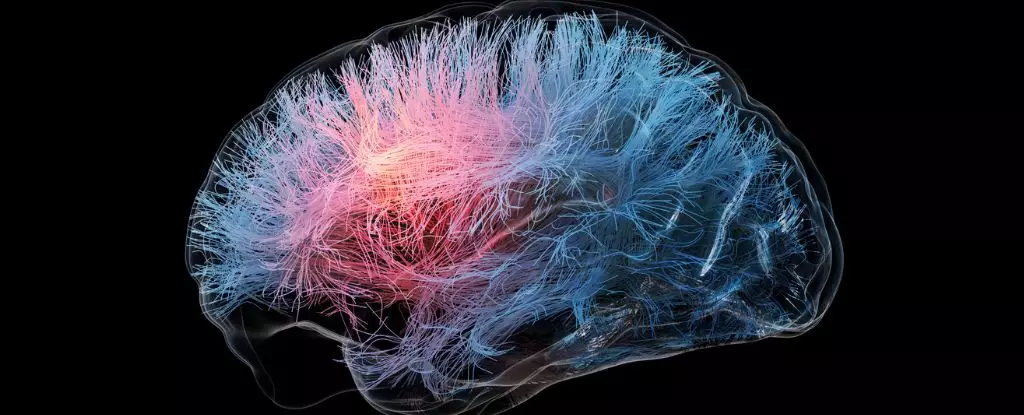The emergence of groundbreaking pharmaceuticals for Alzheimer’s disease has sparked hope for many, offering a chance to extend patient independence and quality of life. Among these innovative treatments is lecanemab, an intravenous medication that has been shown to slow cognitive decline by up to 27 percent, compared to traditional placebo treatments. This marked the drug’s journey to FDA approval in 2023, but there is an unsettling revelation behind this optimism. Recent analyses indicate a stark disparity in drug efficacy between male and female patients, raising significant concerns regarding the adequacy of current clinical trials to deliver equitable treatment outcomes.
The statistics are revealing: in an 18-month phase 3 clinical trial known as CLARITY AD, male participants experienced a 43 percent mean slowing of cognitive decline from lecanemab, while their female counterparts achieved a meager 12 percent—a gap of 31 percent that cannot be ignored. These findings serve as a wake-up call, signifying the imperative for the medical community to reassess the foundations upon which these treatments are developed and evaluated.
The Need for Gender-Inclusive Research
Historically, clinical research has tended to overlook sex-based differences, often relegating them to a secondary concern. This oversight is troubling, especially in a landscape where two-thirds of Alzheimer’s patients are female. The research from McGill University’s Daniel Andrews reveals something uncomfortable yet essential: lecanemab may exhibit limited effectiveness in females. Such a perspective resonates with neuroscientists who express urgent calls for change within the research paradigm.
“As the neuroscience field continues to unfold, it is crucial to recognize that the interaction of sex — including hormonal and genetic factors — can influence disease progression,” stated Marina Lynch from Trinity College. This acknowledgment goes beyond mere data representation; it points to the need for a deliberate and systematic exploration of gender differences in drug responses. Failure to address this gap not only jeopardizes the efficacy of treatment but also inflicts a disproportionate burden on women’s health and wellness.
Amyloid and the Complexity of Alzheimer’s
At the heart of the Alzheimer’s treatment narrative lies the amyloid protein plaque. For decades, this has been viewed as a leading cause of cognitive decline. Yet, recent revelations complicate this established narrative. New evidence suggests that a significant portion of individuals diagnosed with Alzheimer’s—up to one-third—show no amyloid presence in postmortem examinations. This prompts the question: are we targeting the wrong culprit?
Lecanemab specifically aims to clear these plaques, yet researchers remain uncertain about the exact mechanisms that facilitate cognitive decline reduction. The complexities of brain aging, which can differ markedly between sexes, add another layer of ambiguity to the effectiveness of amyloid-targeting drugs. Discussions surrounding how hormonal fluctuations and genetic variations may affect plaque formation and clearance are gaining traction, but significant work remains.
The Call for Enhanced Collaboration
The insights from recent studies amplify the urgency for collaboration amongst pharmaceutical developers and researchers. A collective effort to share data from recent Alzheimer’s trials could accelerate understanding of how drugs like lecanemab interact differently with male and female brains. Analyzing these subtler nuances could reveal crucial mechanisms behind drug effectiveness, ensuring future treatments are both inclusive and beneficial to all patients, regardless of sex.
Lack of thorough examination of sex as a variable in drug trials not only hampers our understanding of treatment efficacy but also perpetuates the skewed representation of males in medical research, which, according to a 2019 analysis, stood at just 5 percent. The consequences of these gaps extend beyond individual patients. They fundamentally challenge our approach to brain health and aging, skewing how society views cognitive disorders as predominantly male-centric issues.
Moving Toward a Comprehensive Understanding
The realities illustrated by the recent findings challenge us to reconsider our approach to Alzheimer’s research. Recognizing the importance of sex differences in cognitive health is not merely about rectifying past oversights; it is about enhancing our understanding of complex neurological functions. It is about ensuring that both men and women receive the most effective treatments tailored to their unique biology.
Moving forward, embracing comprehensive research strategies that include diverse populations and prioritize sex-related variables will be essential. The future of Alzheimer’s care may hinge on our willingness to adapt and evolve, to acknowledge that gender does indeed matter when it comes to understanding brain health and developing transformative treatments. In this evolving landscape, the modern medical community has a critical opportunity to usher in a new era of personalized health care that champions inclusivity and equity.


Leave a Reply